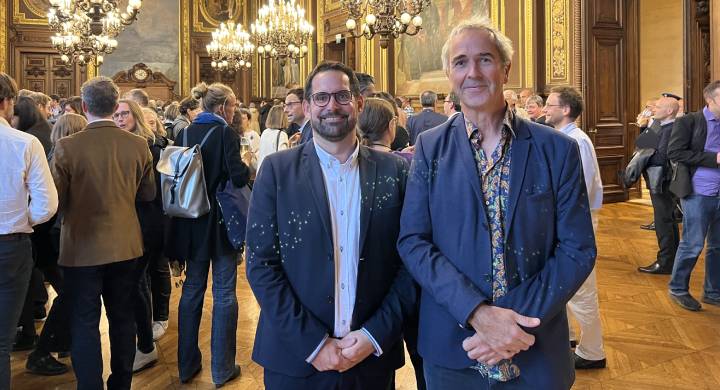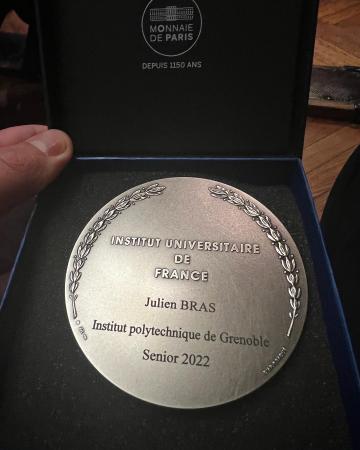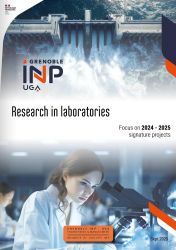Julien Bras, senior member of the IUF
Julien Bras was appointed a senior member of the Institut Universitaire de France (IUF, Academic Institute of France) at an official ceremony in October 2022 in the presence of Sylvie Retailleau, Minister for Higher Education and Research. This honour, given to only 2% of academic staff, was awarded in recognition of his work in the field of cellulose.




 As soon as he decided to become a researcher, Julien Bras wanted to help prepare for the post-oil era; he now wants to start scientific projects to move forward in various fields. “The challenge is threefold: using chemistry to improve cellulose’s functionality, using new processes to better prepare it and better characterising the resulting new, increasingly efficient, cellulose-based objects.” At the same time, Bras is pursuing numerous projects in collaboration with companies from the entire value chain: manufacturers of cellulose-based materials, packaging manufacturers using those materials and end-users. “At LGP2 we are fortunate in having close links with the industry and in having access to high-level pilot systems and technological platforms that give our research credibility.” Collaboration with international research laboratories is also very fruitful: LGP2 recently welcomed around 40 researchers and PhD students to a winter school on biomass use run by lecturers from Sweden, Finland and Austria.
As soon as he decided to become a researcher, Julien Bras wanted to help prepare for the post-oil era; he now wants to start scientific projects to move forward in various fields. “The challenge is threefold: using chemistry to improve cellulose’s functionality, using new processes to better prepare it and better characterising the resulting new, increasingly efficient, cellulose-based objects.” At the same time, Bras is pursuing numerous projects in collaboration with companies from the entire value chain: manufacturers of cellulose-based materials, packaging manufacturers using those materials and end-users. “At LGP2 we are fortunate in having close links with the industry and in having access to high-level pilot systems and technological platforms that give our research credibility.” Collaboration with international research laboratories is also very fruitful: LGP2 recently welcomed around 40 researchers and PhD students to a winter school on biomass use run by lecturers from Sweden, Finland and Austria.